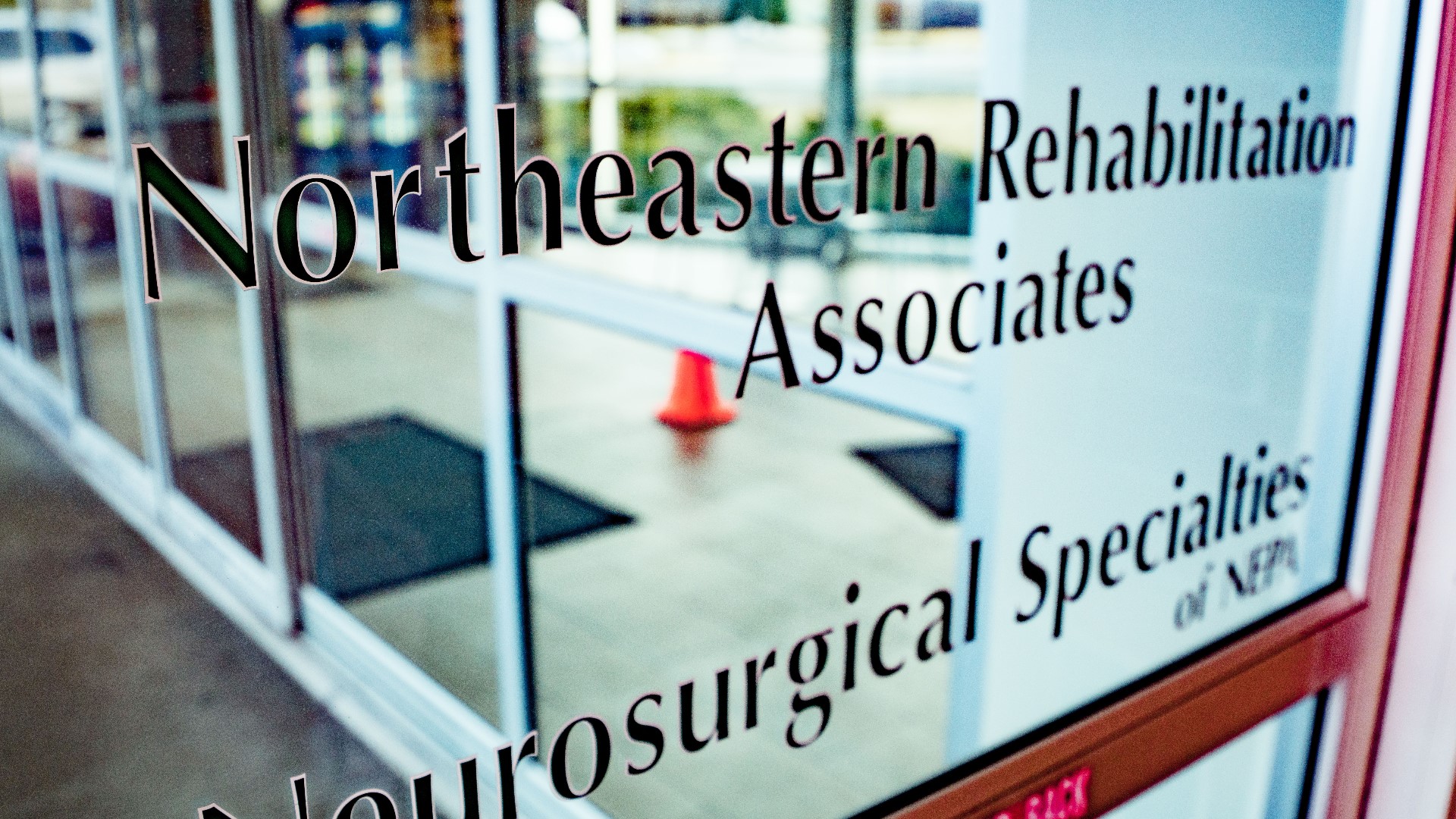After being diagnosed weeks or even months ago, some folks in our area are still battling back against the lingering effects of COVID-19.
These people who just can't seem to kick the symptoms ranging from loss of taste to even fatigue are known as COVID-19 "long-haulers."
Those patients are inspiring a movement in our area that Newswatch 16's Ryan Leckey gave us a glance at on Thursday.
COVID-19 "long-haulers" is the reason why some area healthcare providers, including Northeastern Rehabilitation Associates in Scranton, are rolling out COVID-19 Recovery Clinics or specialized programs. These types of places already exist in larger cities. They are aimed at helping people who just can’t seem to get rid of that brain fog or even muscle pain.
A number of you who chimed in on Thursday's conversation on social media say you can relate.
Christina Brown says she's still experience loss of taste "now going on six weeks." Others, like Penny Betz, say she's still experiencing the occasional shortness of breath "that’s now marking six months."
“Long-haulers” is a name given to patients who have recovered from the worst of the coronavirus, have eventually tested negative for it after the fact, but yet still have symptoms.
"We are learning every single day about COVID," said Maria Wansacz, a naturopathic doctor and acupuncturist at Northeast Rehab in Scranton.
It’s also why Maria says she's seen a spike in COVID-19 "long-haulers" at "The Healing Arts Center" inside Northeast Rehabilitation Associates in Scranton. More patients are now turning to alternative treatments, including acupuncture to regain things like loss of taste. Acupuncture is a 3,000-year-old ancient Chinese practice that uses hair-thin needles that are placed into targeted areas of the body.
COVID-19 "long-hauler" symptoms:
- muscle pain
- residual cough
- fatigue
- digestive issues
- loss of taste
- rapid heart rate
- brain fog
Maria added, "The patients are coming to me because they actually have a lot of muscle pain. Some patients still have a residual cough. They have a lot of fatigue. Some have digestive issues. I actually had a patient last week who is actually having dizziness as well. Heart palpitations and can't sleep. So there are a lot of different symptoms that we're seeing now with post-COVID issues. Very often, people don't even feel the needles go in at all. Acupuncture can be a great addition to anything that someone's primary care doctor is doing."
Maria stresses acupuncture is a cumulative effect and not a one-time visit. You should plan on several sessions to help treat your symptoms. Maria says some insurances do cover acupuncture. If not, it's usually around $70 out of pocket. Sessions last approximately 45 to 60 minutes. You're encouraged to call the facility with your insurance questions at (570) 344-3788.
To help even more COVID-19 long-haulers get better, Northeast Rehab in Scranton is rolling out a COVID-19 Recovery Program to be a one-stop-shop.
It’ll be led by the company’s team of physiatrists, those specializing in physical medicine and rehabilitation, its holistic practitioners in the facility’s healing arts center, and many other medical experts from Allied Services. A team approach that will be similar to Post COVID Recovery Clinics already in place at leading healthcare institutions like Johns Hopkins Hospital in Baltimore, Maryland. The specialty clinic at this place started in April 2020.
"We realized that we were going to see a surge of patients that were going to need rehabilitative treatments after being in the ICU," said Dr. Alba Azola, a Physical Medicine and Rehabilitation at Johns Hopkins.
And for those who weren’t hospitalized, the clinic at Johns Hopkins also helps treat COVID-19 long-haulers and their symptoms, along with people’s mental health since the coronavirus’s long-term effects can also lead to depression and anxiety.
"We also have linked with some psychologists and psychiatrists in the community that are also serving this patient population," said Dr. Azola.
"You guys really kicked off your post-COVID clinic soon after the pandemic began. Do you believe you're going to see a lot more of these rolling out in the country?" Ryan asked Dr. Azola.
"Yeah, so we actually have seen other clinics like ours rolling out on the country. We have been involved in helping other hospitals set up mechanisms so that they can establish and follow our model for our clinic. And it's been really, really inspiring to see how this patients are getting the help they need," said Dr. Azola.
For the most part, most post-COVID-19 recovery programs are really in the development phase in our area.
Newswatch 16 did reach out to UPMC and Geisinger as well.
Although UPMC has a post-COVID-19 recovery clinic in Pittsburgh, a spokesperson says plans are in the works to offer similar services at UPMC Susquehanna in central Pennsylvania.
A rep with Geisinger told Newswatch 16 that much of their care coordination for patients is really being done through people’s primary care physicians and not necessarily a certain program.
The bottom line and the biggest tip from the experts - if you’re dealing with post-COVID-19 symptoms like loss of taste, headaches, or even just getting tired from going up the stairs and those symptoms won’t go away, contact your primary care doctor for some help.

